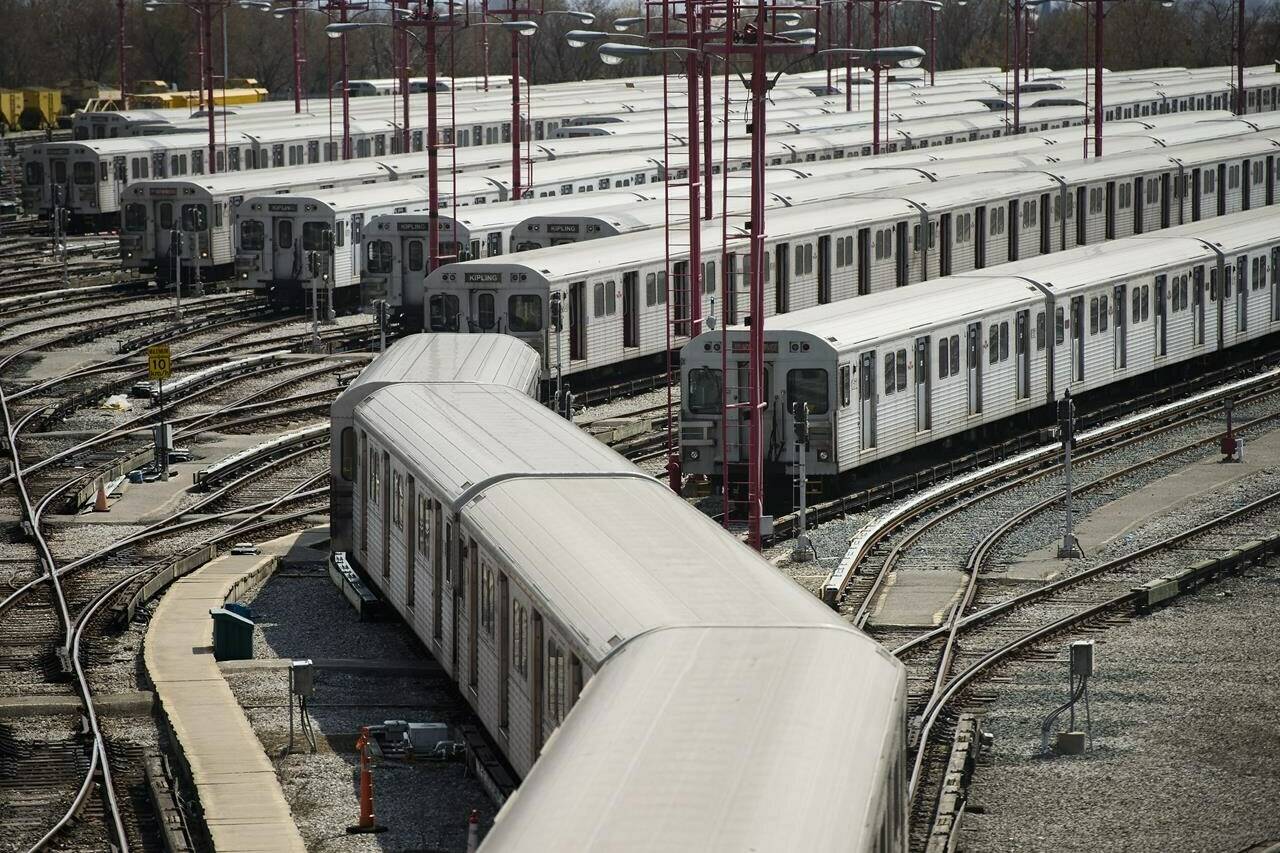Canada’s big-city mayors are calling for the federal government’s help to make up huge shortfalls in transit revenue that threaten to derail the nation’s transit systems.
The Big City Mayors’ Caucus of the Federation of Canadian Municipalities released a statement Wednesday asking the Liberals to cover projected transit shortfalls for 2022, or else risk major service reductions, postponed construction of new projects, and property tax hikes.
The pandemic has wrought havoc on city’s transit revenues, with many riders instead working from home and avoiding tight, crowded spaces.
The future of Canada’s public transit is at stake, said caucus chair and Halifax Mayor Mike Savage.
“I don’t think anybody wants to see transit service cut. It’s too important for too many reasons, for too many people,” Savage said in an interview.
In Halifax, the city is projecting a $5 to $10 million shortfall for 2022, which is substantial for a city of its size, Savage said.
The Toronto Transit Commission projects an operating shortfall of $561 million in 2022, according to the FCM.
Just about every major city expects to fall short by a hefty amount, including $53.7 million in Edmonton and $60 to 100 million in Metro Vancouver.
Unlike the federal and provincial governments, cities cannot run deficits. That means the money bleeding out of Canada’s transit systems will need to come from somewhere.
“It really comes down to: are we going to cut the services that we are providing or are we going to go on the municipal tax rate and ask citizens to pay for it that way?” Savage asked. “We have to figure out a way to make sure that we don’t lose service or end up putting an undue burden on municipal taxpayers.”
Cutting service or hiking fees would jeopardize the essential service many people rely on, he said.
Former federal Liberal cabinet minister Amarjeet Sohi, who now serves as the mayor of Edmonton, echoed the other mayors’ calls for the federal and provincial governments to pitch in on the cost of running transit.
“Collaboration is a necessary step towards pandemic recovery and our government partners must recognize our urgent need for support,” Sohi said in a statement.
Access to transit will be an integral part of Edmonton’s pandemic recovery, especially for front-line workers, businesses, and marginalized communities who disproportionately rely on transit, said Sohi, who is also a former bus driver.
Ridership in Edmonton peaked at about 58 per cent of pre-pandemic levels last year, the city’s latest update shows.
“Our public transit system is at risk, and we must take action,” Sohi said.
The federal government gave extra funds to make sure the nation’s buses and trains keep running throughout the pandemic, starting in 2020 with the Safe Restart Agreement.
At the time, the federal government forwarded $19 billion to provinces and territories to help shore up their economies, and provinces passed on a share of those funds to cities to cover severely lagging transit revenue.
But the final instalment of that agreement was paid in 2021, and ridership has still not returned.
The mayors say the need is more urgent now as massive transit shortfalls are projected for the third year in a row, and people are still avoiding buses and trains during the Omicron wave.
“We had an issues before Omicron, we had shortfalls, but Omicron has accentuated it,” Savage said.
The problem may be even greater than some cities are projecting, he said, because the budgets were drawn up before anyone predicted the Omicron wave.
Ottawa, for example, tabled its 2022 transit budget in November with a projected $60.6 million shortfall, including $41.2 million in reduced ridership revenue.
But that estimate assumes 82 per cent of Ottawa’s pre-pandemic ridership will return to the buses and trains, though ridership remained drastically lower last year and Stats Can shows Ottawa has the largest work-from-home population in the country.
The mayors have met with government officials, including the prime minister, several times on the issue since the federal election, Savage said.
Dominic LeBlanc, minister of intergovernmental affairs, infrastructure and communities, did not immediately respond to a request for comment.
—Laura Osman, The Canadian Press
RELATED: Greater Victoria bus ridership down 75 per cent amid pandemic
RELATED: ‘Build it and they will come’: Canada’s public transit looks to rebound from COVID

